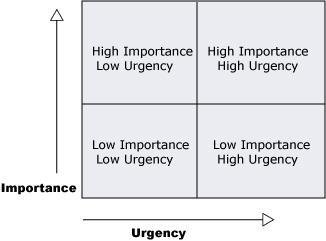
Do you ever feel that you have too much on your plate?
That you can’t get through all the jobs and tasks at work in a day?
Do you take work home or work at weekends?
Is there an actual or impending threat to your work-life balance due to the amount of work and responsibility that you are doing?
We’ll have a look at some of the other problems linked with this later.
The skill and ability to manage time is prized as one of the most important soft skills in business in the 21st century.
Now this is a great quest, ventured upon by employees and management alike, but one which is totally unachievable.
I mean, would you be up for some unicorn riding or perhaps traveling to work on a magic carpet – there would be no parking problems or congestion… Interested? no, I thought not.
Do people make money from unicorn stables and riding schools? Have you ever been to a flying carpet salesroom?

Well of course this is ridiculous, but remains similar to the idea of managing time and people are paid good money training and selling solutions to help businesses manage time.
The fact of the matter is that nobdy can manage time – it is an unmanageable phenomena – it passes and we do the best we can to do as much as possible with the little that we have available to us, which ultimately is unknown.
OK, we do know that there are 60 seconds in a minute / 60 minutes in an hour / 24 hours in a day / 7 days in a week / 52 weeks in a year – that is schoolboy knowledge – but we only know how much we have actually received after it has passed us by.But just as a reminder, that is 86,400 seconds a day / 604,800 seconds a week or 31,536,000 a year – how many of these do we use effectively?
No, I digress …This is a bit of a retrospective accounting – we know what we have had, and we know what we hope we will have, after all we can be knocked down by a bus tomorrow – but let’s not think about that at this point.
Do we use our time as effectively as we could or should?
Do we treat our time as a commodity as we do with money?
The difference between and time and money – and some say “time is money” – is that we all have the same amount to use as we please – total egalitarianism!
We cannot invest time – although we often say that we do.
We cannot save time today to do something tomorrow – at the end of the day, in the strictest meaning of the terms, we are back at zero, or should I say at 86,400 seconds a day – not a second more, not a second less.
Time management (let’s still call it this) is important for many reasons, but perhaps one of the most important is the amount of stress that poor time-management skills brings upon individuals and teams in the workplace.
So we’ve got the idea, trying to manage an unmanageable entity such as time is futile – it just cannot be done.
The only way we can hope to use out time the best is to manage something that IS manageable – Ourselves.
We’ll try to avoid the famous Big ‘C’word but ultimately it will come into play, as this is the biggest sticking point in any form of self-management.
Yes, you know what I am talking about here Change!

So let’s look at some pratical tips that you can use to manage yourself and make the most of your time.First of all, you need to know or learn, how you use your time – this often throws up big surprises.
When we work with clients we go through a painless but thorough audit on time usage before proposing solutions which will enable them to capitalise on self-management skills, reduce stress, increase productivity and instill a culture of effectiveness into the organisation.
Before going for the cure, you need to find out your symptoms too by discovering just how you use (or misuse) your time.
1. Plan what you are going to do in the day – after all if you don’t know where you are going you probably will not end up there. If you fail to plan you are planning to fail!
2. Learn to say ‘No’ effectively. One of the worst profiles in terms of self-destruction, is the person who takes everything on, gets overloaded and still accepts more – knowing pertinently that they have no chance of fulfilling what they take on in the first place. Now this provokes problems all around. the quality of work suffers or is incomplete, due to the workload that is taken on. The person is judged as someone who produces shoddy results, they work long hours, lose self-confidence, self-belief and self-esteem as they are viewed as an under-achiever. Work / home life is effectively destroyed – leading to stress, health is affected, including sleeping and eating patterns, poor interpersonal skills – self-destruction and in extremes, to depression.
3. Be clear or clarify your job description, duties, obligation and tasks – once again when things are clear you can then seek out areas of maneuver with your self-management skills – try to limit this to a single sentence – that is being clear!
4. Get clear on the differences between Efficiency and Effectiveness – Efficiency is doing things right – adhering to rules, regulations and laid down processes. Effectiveness is doing the right things in a particular order and sequence- that bring results. The problem that a lot of us have is that we focus on being effective to the detriment of our effectiveness.
5. Remember the Pareto rule – you know, the 80-20 rule… remember to get it into the right ration so that you are spending 20% of your time doing work that produces 80% of the results – not the opposite. This can help you decide where you should be targeting your efforts.
6. Set priorities – Yes, go ahead – write them down, keep them in your eyeline. You will get a huge amount of satisfaction when you cross them off of your list as completed – refer back to item 1. Prioritise with pay-offs and rewards – if you get to the end of that report in the time you planned to, go and have a coffee or a drink (non-alcoholic in work-time of course). If you have reached the end of your actions ahead of time, why not finish early from time to time.
7. Remember the Urgent / Important matrix when planning your day or tasks – now there will always be unexpected things that creep along to mess up all your best laid plans – the Urgent / Important Matrix will be a big help in planning the sequence of tasks that you are going to undertake.
Go ahead and create a “not to do” list and pin it somewhere that you can see it so that you can resist what you should be resisting and focus on what you should be doing.

In the top left, these things just fall into the category of – Don’t do it! Whilst in the bottom right, this needs to be done now – drop everything!
8. Banish interruptions – all of those things that hamper you and prevent you from reaching your goals, but first you need to find out what they are … you will be surprised again.
9. Plan not only your working day but also your leisure time, your ‘you’ time and your family time. If there is not a clear equilibrium struck between these then you are just stocking up problems for the future and when the ballon bursts, averyone will get wet!
10. Organise your working environment – organize a place which is clutter-free, that looks an inviting place to work – it will pay dividends in the way that you view your work, in all senses of the term.
11. Cost your time – you know how much you are paid, and you know how many hours are in a day. Evaluate the pay-back on certain tasks and judge if they are really worth doing, or at least get a sense of priority in what you are doing on the effectiveness scale.
12. Learn to delegate effectively – but keep in mind the WIIFM (what’s in it for me) and the WIIFT (what’s in it for them) when doing this. Think about STARs when delegating – Skills needed / Time needed / Authority of the person to carry out the task / Give Responsibility to the person you have delegated to, sharing credit where due and failures if they occur.
13. Anticipate and plan for cyclic workloads – if you know that the beginning or end of the month is always a busy time – plan for this in advance and always have a plan ‘B’ ready to be rolled out.
14. Don’t call or attend meetings for no real reason – ensure that they start and finish on time, you have only invited the people that really need to be there and plan the meeting carefully.
15. Learn to say “Goodbye” – when talking around the coffee break, on the telephone, the drop-ins that people do on you, usually preceded by “have you got a second?” and usually end up lasting 20 minutes – err, that’s 1,200 seconds in fact Bob!
16. Don’t double-up on communication tools – you know what I mean? Sending an IM, a text message, an e-mail and a message on a person’s telephone for the same thing. Not only have you wasted you time but you have wasted the time of another person too – learn how to manage communication tools effectively.
17. Write things down, yes, this helps us keep on track without having to rely on the ephemeral nature of our memories, but do not become a list-obsessive – we want to increase effectiveness, not paper usage.
18. Handle information once only – there are only three things to do with files, messages emails etc. – File it / Use it / Bin it! You decide but don’t keep things in limbo on your desk when they need to be managed.
19. Learn to listen effectively, using active listening techniques – you will pick up a lot more in less time.
20. Review your goals daily – look at what you set out to do, where you got to and what is left to do, so that you can start planning for the next day, before it arrives.
Getting into this habit will help you to get a firm grasp on the state of you projects and tasks and to be effective almost immediately on arrival at work the following morning.
This will also help you to avoid “Now where am I with that?” or “I don’t feel that I have done anything today”. Try it you’ll like it.

One of the biggest difficulties that we encounter when working with clients on self-management and stress management is that although the organisation has a clear will to change things in terms of the way time is managed and they have paid us to train their employees for this, is that the culture is at loggerheads with what we are paid to do.
For example, if we take point 6, where we encourage people to be effective as possible and earn a reward such as knocking-of earlier if a project or task has been effectively completed ahead of time.
In a lot of companies that we encounter, especially in France, the culture of the company suffers from, what I call “Last car in the car park” syndrome.
That is to say that as long as you are working long hours – your car is still here late at night, therefore you are still working, you are judged to be a good and effective worker – whereas we are suggesting being more effective and working less.
We know that there is a ceiling in terms of concentration and effectiveness which is not infinite and which needs to be managed – some people achieve appreciably more in 6 hours than others achieve in 14 hours, but most cannot remain effective after more than 8 hours – I mean really effective, although there will always be exceptions that prove the rule.
Attitudes need to be changed from the archaic, endless days, and why not, taking work home and at weekend to one where effectiveness is prized to the extent that the “last car in the car park” is viewed as a bad, rather than as a good thing.
Change is a collective things – we cannot expect it to happen just out of thin air – it happens by the catalyst that crystalizes the collective – when change happens in this manner – facilitated, rather than imposed change occurs, empowering all as stakeholders and guarantors of the long-term effects of this change – we’re all responsible, let’s make sure it happens!
If you are in France – have a look at our program HERE – if you are English speaking just send us a message to find out about our E-Learning / Face-toFace Soft Skills seminars including our program “Prioritising Priorities” which guarantees to save each trainee at least 30 minutes per day every day.
© 2011, ©Active Consultants 2011. All rights reserved. Copying in part or in entirety only permitted by written consent

Original content here is published under these license terms: X
License Type:Commercial
License Summary:You may read the original content in the context in which it is published (at this web address). You may make other uses of the content only with the written permission of the author on payment of a fee.
Republished by Blog Post Promoter

